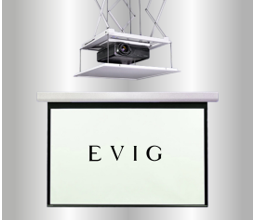Mutf_In: Tata_Busi_Cycl_Bps5me

The approach taken by Tata_Busi_Cycl_Bps5me illustrates a strategic framework that prioritizes adaptability in an unpredictable economic environment. By integrating innovative business cycle strategies and sustainable practices, Tata positions itself to enhance operational efficiency. This multifaceted model fosters resilience against market fluctuations. However, the implications of this strategy on long-term growth and competitive positioning remain to be fully explored. What specific tactics will prove most effective in achieving these goals?
Innovative Business Cycle Strategies
Innovative business cycle strategies are essential for organizations aiming to navigate the complexities of economic fluctuations effectively.
By emphasizing market adaptation, companies can swiftly respond to changing consumer demands and preferences.
Moreover, fostering strong customer engagement enhances loyalty and trust, positioning businesses favorably in competitive landscapes.
These strategies collectively empower organizations to thrive amidst uncertainty, ultimately ensuring sustained growth and resilience in the marketplace.
Enhancing Operational Efficiency
Enhancing operational efficiency remains a critical objective for organizations seeking to optimize performance and reduce costs.
Effective process optimization involves analyzing workflows to eliminate bottlenecks and streamline operations.
Additionally, resource management plays a vital role in ensuring that assets are utilized effectively, ultimately leading to improved productivity.
Sustainable Practices in Business
As businesses increasingly recognize the long-term benefits of sustainability, the integration of eco-friendly practices into their operations has become essential.
Implementing green supply chains and adopting eco-friendly initiatives not only enhances brand reputation but also reduces environmental impact.
These practices promote resource efficiency and foster innovation, enabling companies to meet consumer demand for sustainability while contributing to a more resilient economy.
Lessons for Future Enterprises
While many enterprises grapple with the challenges of sustainability, those that adopt a forward-thinking approach can glean valuable lessons for future business models.
Emphasizing market adaptability and fostering robust customer engagement are crucial. Organizations can thrive by understanding shifting consumer preferences and leveraging innovative solutions, thus creating resilient frameworks that not only meet current demands but also anticipate future trends in an ever-evolving marketplace.
Conclusion
In conclusion, Tata’s emphasis on innovative strategies and sustainable practices positions it as a beacon for businesses navigating economic fluctuations. By enhancing operational efficiency, the company not only optimizes performance but also cultivates resilience akin to a well-rooted tree weathering storms. This proactive approach not only ensures competitive advantage but also offers essential lessons for future enterprises, demonstrating that adaptability and customer engagement are paramount in an ever-evolving market landscape.



